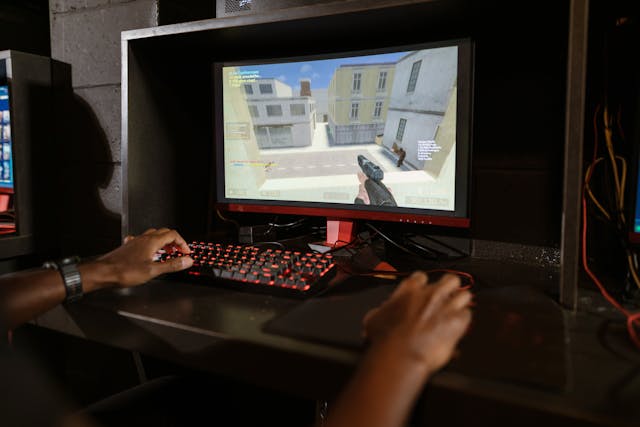Andrew K. Pryzbylski and Netta Weinstein published a report on the Royal Society Publishing website on February 13th, 2019 detailing the latest research in to video games, adolescent aggression, and the effects it may have on their behavior in the real-world. According to the study, the violence levels in the games that were part of the study did not increase the aggression levels of the adolescents.
Now typically this is a common sense conclusion for most normal people, but the Oxford study took a different approach to reach their conclusion. First of all, out of the 1,000 adolescents (500 male and 500 female) they both surveyed the kids on how they felt after playing the game, but also gathered feedback from third-parties as well. The study relied on an independent coder to validate the violence levels of the games that were part of the study (including the game ratings), and they used the carers (i.e., parents, guardians, caretakers) to determine whether or not they saw a change in aggression levels or violent behavior from the kids over the course of the study sample. This was to reduce the results being tainted by the subjectivity of the adolescents.
According to the researchers…
“[…] the results derived from our hypothesis testing did not support the position that violent gaming relates to aggressive behaviour. […]
They detailed how separating the participants from judging their own aggression levels from the research and putting the onus on the carers, they were able to more objectively gauge from a real-world perspective whether or not the teens (aged 14 through 15 years of age) showed signs of increased aggressive behavior, for which they did not.
Basically, after playing the games for a set amount of time, the guardians reported that the teens’ behavior did not change.
The researchers used this opportunity to take digs at other, more spurious research (and the uncritical media that gives it a platform) that has inconsistently stated that video games do increase aggression in kids and that they do result in creating environments that foster violent behavior, stating…
“[…] In other words, we found adolescents were not more or less likely to engage in aggressive or prosocial behaviours as a function of the amount of time they devoted to playing violent games. This pattern of findings further suggests that links reported in the literature might be influenced by publication bias, selective reporting, or an artefact of unobserved or hidden moderators, as has been previously suspected. […]
This is just another in a long line of other research reports that have come to the same conclusion. However, they do not close off the possibility of correlation between certain video game mechanisms that can affect an adolescent’s “violent” behavior, and they note that more research is required in the field and more rigorous testing could reap more definitive answers on the subject matter.
They conclude the study by noting that while more research is required, they believe they’ve made a breakthrough in using a more objective method than previous studies. However, they also note that honesty, openness, and rigor are essential for conducting the research correctly…
“Despite the null findings identified in the present study, history gives us reason to suspect the idea that violent video games drives aggressive behaviour will remain an unsettled question for parents, pundits and policy-makers. Although our results do have implications for these stakeholders, the present work holds special significance for those studying technology effects, in general, and video games, in particular. It is crucial that scientists conduct work with openness and rigour if we are to build a real understanding of the positive and negative dynamics and impacts of technology in people’s lives.”
It’s unlikely this will make the anti-gaming activists within enthusiast media scale back their attacks on the gaming community, nor will it likely dissuade politicians from using video games as a scapegoat in the next big shooting spree, but it will give cooler heads and calmer minds a more veritable look at how video games does not cause teen violence.
(Thanks for the news tip QuickShooter)






